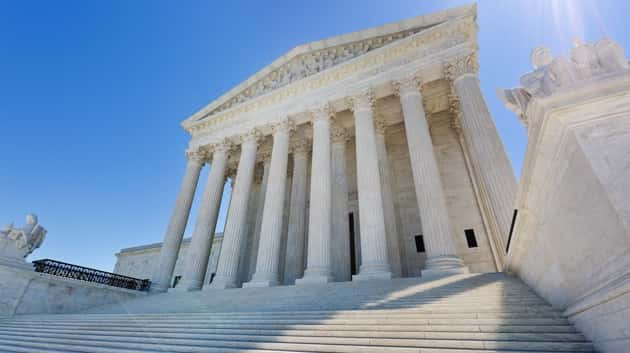
YinYang/iStockBy DEVIN DWYER, ABC News
(WASHINGTON) — The Supreme Court issued its opinion Monday on a historic case about LGBT employment discrimination, with the majority deciding that Title VII of the Civil Rights Act of 1964, which prohibits discrimination on the basis of sex, also applies to gay or transgender people.
“In Title VII, Congress adopted broad language making it illegal for an employer to rely on an employee’s sex when deciding to fire that employee,” Justice Neil Gorsuch wrote in the majority opinion. “We do not hesitate to recognize today a necessary consequence of that legislative choice: An employer who fires an individual merely for being gay or transgender defies the law.”
It was a 6-3 decision, with Chief Justice John Roberts and Justice Neil Gorsuch joining the more liberal side of the court — Justices Ruth Bader Ginsburg, Sonia Sotomayor, Elena Kagan and Stephen Breyer.
Gorsuch wrote the majority opinion, while Justices Samuel Alito, Brett Kavanaugh and Clarence Thomas dissented.
“Those who adopted the Civil Rights Act might not have anticipated their work would lead to this particular result,” Gorsuch wrote. “Likely, they weren’t thinking about many of the Act’s consequences that have become apparent over the years, including its prohibition against discrimination on the basis of motherhood or its ban on the sexual harassment of male employees.”
“But,” he continued, “the limits of the drafters’ imagination supply no reason to ignore the law’s demands. When the express terms of a statute give us one answer and extratextual considerations suggest another, it’s no contest. Only the written word is the law, and all persons are entitled to its benefit.”
The case was argued in October 2019 and concerned three cases involving individuals who say they were fired because of their sexual orientation or gender identity.
One of those cases came from Aimee Stephens, a funeral director in Michigan who was fired in 2013 after she told her employer she was transgender. Stephens died from complications of kidney failure in May.
Another of the cases came from Donald Zarda, a skydiving instructor in New York who was fired after he mentioned that he was gay. Zarda died in a base jumping accident five years before the case was heard at the Supreme Court.
While the case is historic for its protections granted to LGBT people, it was also historic for how, logistically, the opinion was granted. While the case was argued months before coronavirus struck the United States, moving the Supreme Court’s oral arguments to a virtual setting, the decision was announced in a virtual format. The Supreme Court website quickly faced apparent issues with so many viewers attempting to download the opinion, which is over 170 pages, leading to delays in accessing it.
Copyright © 2020, ABC Audio. All rights reserved.
